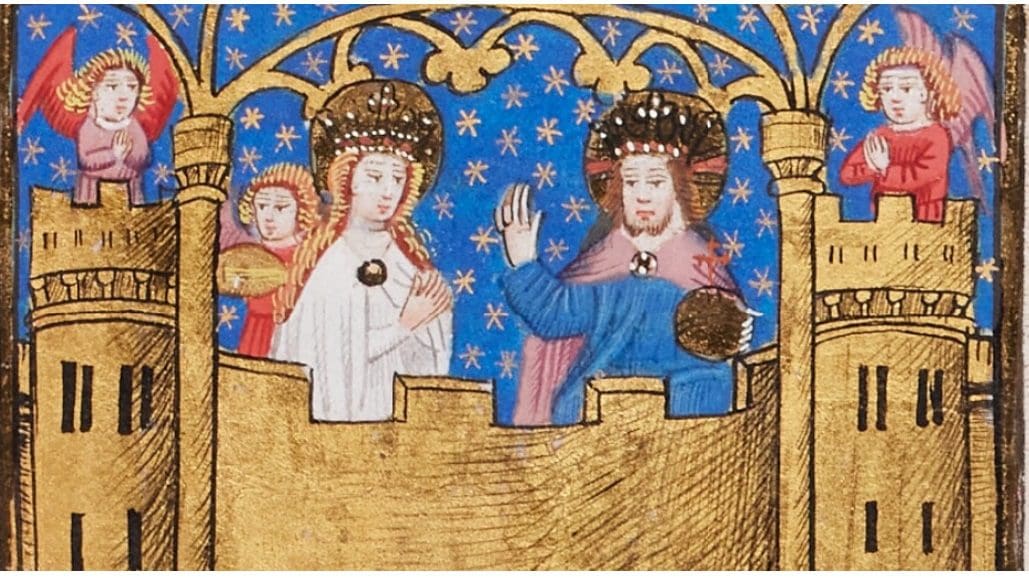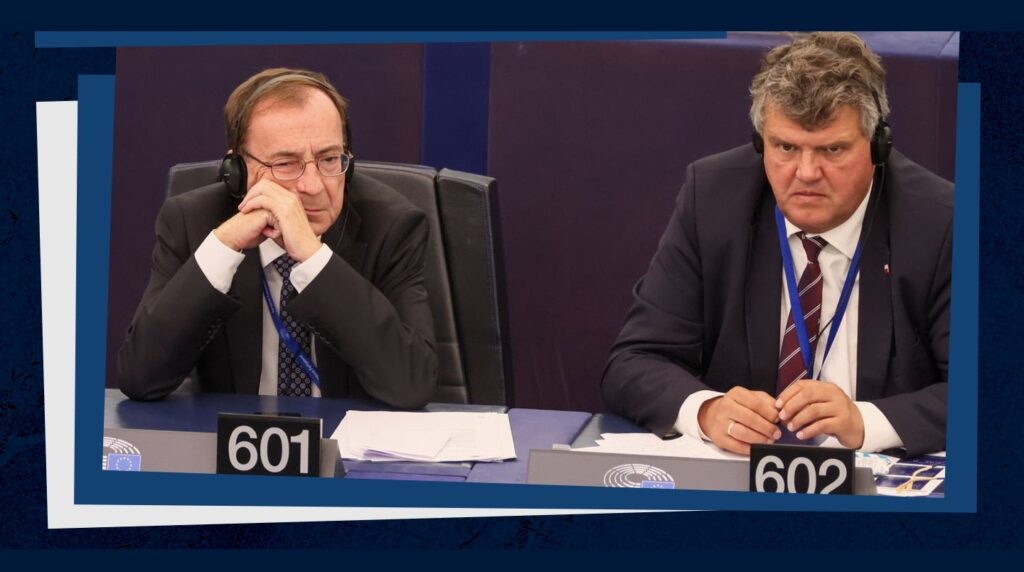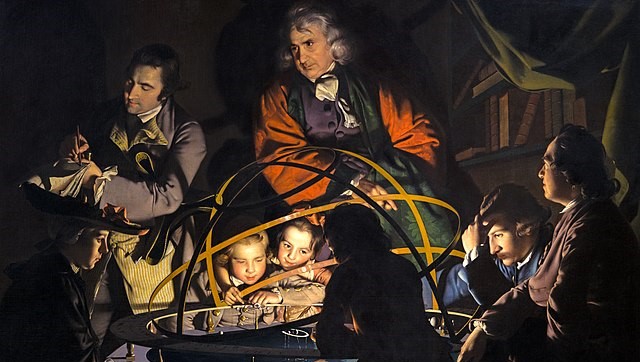Idealists and Realists[1] is an impressive collection of new and previously published studies in journals and volumes by Attila Károly Molnár, an intellectual historian, conservative political thinker, and the head of the Tamás Molnár Research Institute. One of the starting points of Molnár’s thinking is the great Augustinian theme, the central pair of concepts in the treatise De Civitate Dei.
It is not by chance that an article about St Augustine was the second in order in this volume, i.e., immediately following Morus’ interpretation of Utopia. Augustine is undoubtedly the ‘idealist realist’ who, among many other things, is one of the ‘founding fathers’ of European Christian and conservative political thought. Perhaps for the first time, the impossibility of a utopia is articulated in such a sharp way that, although he clearly joins the Platonist tradition, he also breaks from it at the same time. As Molnár formulates:
‘Saint Augustine was not interested in the improvement of human institutions: the opposite of the “realist” image of the Civitas Terrena is the “idealistic” Civitas Dei, unattainable in earthly life, the description of which is one of the anti-political desires, if not the anti-political desire of today in its earliest formulation.’[2]
Human power has deteriorated and is based on coercion, and the alternative to this is not the philosopher state of the wise (Plato), but the sovereign state of the righteous, which, however, cannot be created by human effort.
That is why Augustine can be considered an important forerunner of later conservative thought, and, according to Molnár, also of political philosophical realism.
‘The main current of moral liberalism fought against an idea called realism today, according to which it is impossible to create a perfect earthly society…Contrary to the agnosticism and progressivist-reformist hopes of the moderns, there is no worldly salvation in this realism.’[3]
The first modern formulations of the European Christian and conservative tradition (Burke, de Maistre, Donoso Cortes or, in the case of the Germans, Justus Möser and Adam Müller), stressed the imperfection of the ‘Earthly city.’
While the conservatives emphasized the problematic, complex perception of human relations that cannot be improved by the means of politics, the opposing camp, the liberal-progressive and also the socialist later, focused on the—alleged—development of human nature and the general progress affecting the ‘entire’ world. Mankind’s intellectual, and even moral, improvement through the course of history was emphasized.
Attila Károly Molnár goes on to analyse authors such as Hobbes, de Maistre, Tocqueville, T.S. Eliot and Roger Scruton in his book. These thinkers can all be classified in the broad sense of the Christian-conservative tradition. All of them emphasized the impossibility of Utopia and did not share the liberal optimism: according to them, spontaneous development does not occur in relation to things left to themselves, nor can ‘just equality’ be created in this world. They did not accept socialist optimism either: a just state and a good society cannot be achieved through the saviour-intervening contribution of a progressive vanguard, by putting state goals at the service of the—alleged—‘progress.’ Of course, the interpretation of Karl Mannheim and John Stuart Mill is somewhat out of line. Mannheim, however, a former Marxist ‘at the end of his life, became one of the most important members of the Moot-Circle, dominated by the spirit of T. S. Eliot and Christopher Dawson…Mill is above all worth studying more closely, because, as the motto of the study referring to Maurice Cowling says: truth is best found in the study of errors.’[4]
According to the book’s perhaps most important study on T. S. Eliot:
‘The important difference is not between traditions, but between tradition and the loss of tradition, chaos.’[5]
The concept of tradition—which, according to Molnár, the poet and writer Eliot significantly revitalized in the first half of the 20th century—can be contrasted with the creed of the progressives. However, tradition cannot mean an empty and petty bourgeois ‘tradition preservation.’ As Eliot, for example, is considered especially innovative, sometimes shocking—and, according to some, downright ‘modernist’—in literature. The true preservation of tradition has always meant a kind of spiritual identification with those in whom it was once embodied: with the forefathers, the ancestors, with the spirit of other ages—and at the same time, a sharp confrontation with the majority, the trend, the general, the accepted mainstream.
Eliot's most important writing analysed here, The Idea of a Christian Society, essentially draws attention to the fact that European culture is no longer Christian. The worship of ‘science’, the Comtian positivism or liberal and Marxist secularism dominates the nominally still perhaps Christian society that actually belongs entirely to the ‘world’, even if it is not a militant enemy of that which is ‘above of the world.’ According to Molnár, Eliot argued against Matthew Arnold's 1869 book Culture and Anarchy, claiming that without religion, culture is not culture, as it cannot save people's souls from chaos. ‘Secular culture cannot survive,’ wrote Eliot, and to all this one might add that the word culture itself derives from the word cultus.
Molnár highlights Eliot's other very important statement, which claims that the secular religion of democracy, with which some people want to replace transcendence, is not suitable to survive without non-liberal and non-democratic supports such as tradition, authority and religion. In addition, the term democracy itself—which is treated as a true ‘idol concept’ from the progressivist mainstream—is also very problematic, since ‘The term "democracy"...does not contain enough positive content to stand alone against the forces that you dislike, it can easily be transformed by them.’[6]According to Eliot's findings, the real gulf is between those who believe in the supernatural and those who don’t.[7]
If a society is exhausted in immanence, if people are not aware of the finitude of their own life, knowledge, and power, and if every goal of the person, the state, and politics is directed towards material interests, then the state will be exactly that Civitas Terrena, which is also Civitas Diaboli. Everything is justified by the stronger interest (Hobbes), pragmatism and secular science serve the immanent power goals of the great Leviathan, while real wisdom, taste, and arts, that make life pleasant (or just bearable) start to decline, wither, dissolve into a gigantically increased bureaucracy called ‘the state.’
Is this book ‘fresh’ and ‘relevant?’
One must have a very serious case of spiritual-intellectual blindness to evaluate the previous two-and-a-half-century reign of secularism, pragmatism, rationalism, and materialism as a progressive success story that has made humanity educated and led it to civility, good taste, and wise judgment. Contemporary disaster narratives dominate even the mood of the most progressive-technocratic financial elites.
‘Crisis’ is one of the most frequently occurring terms today, and it hardly sounds more ridiculous than the cheap cultural and societal optimism of the ‘Belle Époque’.
Molnár also dedicated two essays in his collection to Joseph de Maistre, one of the most insightful critics of the infamous French Revolution of 1789, what can only be called ‘great’ in terms of his length and its material dimensions. As Molnár puts it:
‘[De Maistre] currently does not seem suitable for building a university career in Hungary. Perhaps the explanation for this is that he was steadfastly and sharply opposed to the Enlightenment and the French Revolution, and this opposition resulted in the formulation of views that could not be domesticated by today's university mainstream.’[8]
Maistre, who was hardly taken seriously in the nearly two centuries since his death, who was branded as an obscure reactionary, even a ‘protofascist’ (by Isaiah Berlin) and an irrationalist fantasist, saw very clearly that ‘history is not a progress towards freedom and enlightenment; and man is complex, irrational, senseless and often fanatical.’[9]
It is clear that the influence of such books will never extend to the mainstream, but that is not a problem for us. For those of who do not find it important or relevant to always lean in the direction the wind is blowing, nor the appreciation of Civitas Terrena, the book is very interesting. Even in his own time, very few people understood De Maistre, and even fewer loved him, which of course does not mean at all that he was not—in the essence of things—profoundly right.
[1] Molnár Attila Károly: Idealisták és realisták. Eszmetörténeti tanulmányok. Budapest, Századvég 2023.
[2] Molnár, Idealisták és realisták, 36.
[3] Molnár, Idealisták és realisták, 35.
[4] Molnár, Idealisták és realisták, 291.
[5] Molnár, Idealisták és realisták, 291.
[6] Eliot quoted by Molnár, 194.
[7] Molnár, Idealisták és realisták, 196.
[8] Molnár, Idealisták és realisták, 178.
[9] Molnár, Idealisták és realisták, 183.








